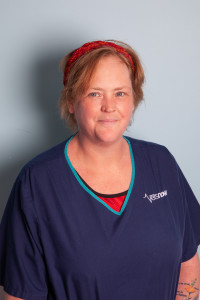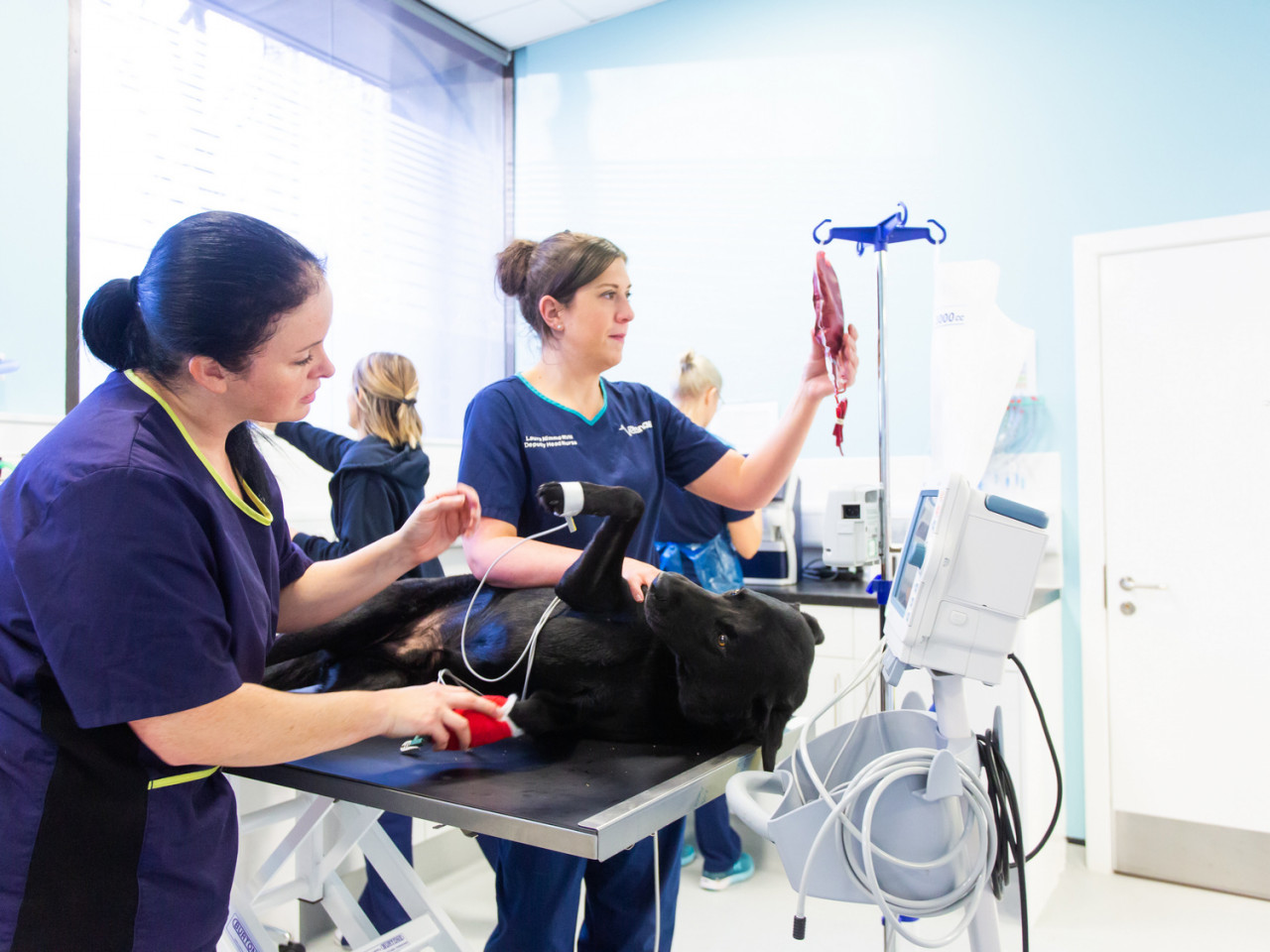With years of experience in veterinary nursing and a deep passion for animal care, Kath Howie stands at the forefront of providing exceptional medical attention and support to our patients.
In this exclusive interview, we delve into the vital role played by veterinary nurses and gain valuable insights from Kath about their responsibilities, challenges, and the unique rewards they experience while working in this field. Join us as we explore the world of veterinary nursing through the eyes of a highly respected professional who leads a team of dedicated nurses at Vets Now.
Kath, can you describe your role and responsibilities as Clinical Nursing Manager? What does your day-to-day activity look like?
As Clinical Nursing Manager, my role is all about coordination and overseeing the daily operations of the hospital. I handle things like scheduling, managing the nursing staff, ensuring proper protocols are followed and assisting with complex medical procedures. It’s a busy but fulfilling role!
How long have you been with Vets Now and what’s your previous background?
I have been with Vet Now for just over 18 years. I qualified in 2000, working in primary care practice initially before moving to referral practice for a few years of intensive care experience and finally emergency and critical care, achieving the VTS(ECC) in2009 and then recertifying in2014 and 2019. I currently tutor for the Vets Now certificate in emergency and critical care nursing and spend a lot of time mentoring and developing RVNS both in and outside of the workplace. My interests are neonatal medicine and improving outcomes in Sepsis.

What inspired you to pursue a career as a Clinical Nursing Manager in an animal hospital?
Well, I’ve always had a deep love for animals, and I wanted to make a meaningful difference in their lives. Becoming a Clinical Nursing Manager in an animal hospital seemed like the perfect way to combine my passion for animals with my desire to provide excellent care.
How does your position contribute to the overall functioning of the animal hospital and the well-being of the patients?
Being a Clinical Nursing Manager is crucial to the functioning of the hospital. I work closely with the veterinarians, technicians, and other staff members to ensure that our patients receive the best possible care. It’s about maintaining a smooth workflow and ensuring that every pet gets the attention and treatment they need.
In your experience, what are some of the most common challenges faced by veterinary nurses, and how do you and your team overcome them?
Veterinary nursing can be challenging at times, especially when dealing with difficult cases or handling emotional situations with clients. To overcome these challenges, we rely on good communication, teamwork, and compassion. Supporting each other and working together helps us navigate through any obstacles that come our way.
Veterinary medicine is constantly evolving. How do you and your team stay updated on the latest advancements and best practices in the field?
Staying updated is crucial in veterinary medicine. We attend conferences, workshops, and seminars to keep up with the latest advancements and best practices. We also have access to online resources and participate in continuing education programs. It’s an on-going process, but it’s necessary to provide the highest level of care.
Animal hospitals often face emotional situations with clients and their pets. How do you and your team approach and handle these sensitive situations?
Emotional situations are part of our job. We approach them with empathy and understanding. We make sure to create a safe and comforting environment for our clients during difficult times. Listening, providing support and offering guidance are key in helping them navigate through the emotions associated with their pet’s health.
What advice would you give to aspiring veterinary nurses who are considering a career in the field?
To aspiring veterinary nurses, I would say follow your passion and never stop learning. This field requires dedication, compassion, and a willingness to adapt to new challenges. It can be tough, but the rewards of helping animals and their owners are immeasurable.
Lastly, in your opinion, what sets Vets Now apart from others in terms of the quality of care and services provided?
What sets Vets Now apart is our genuine dedication to personalised care. We treat each animal as an individual, tailoring our approach to their unique needs. Our strong teamwork, compassionate staff, and commitment.


